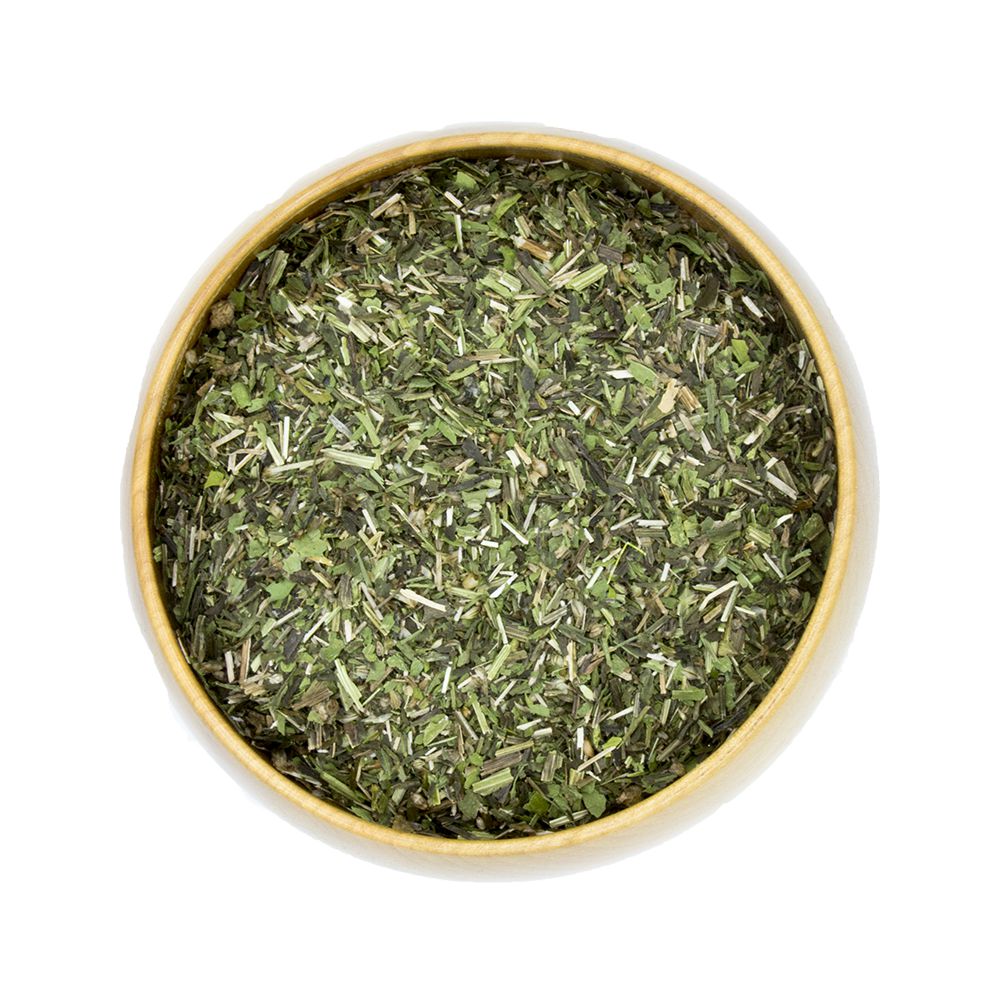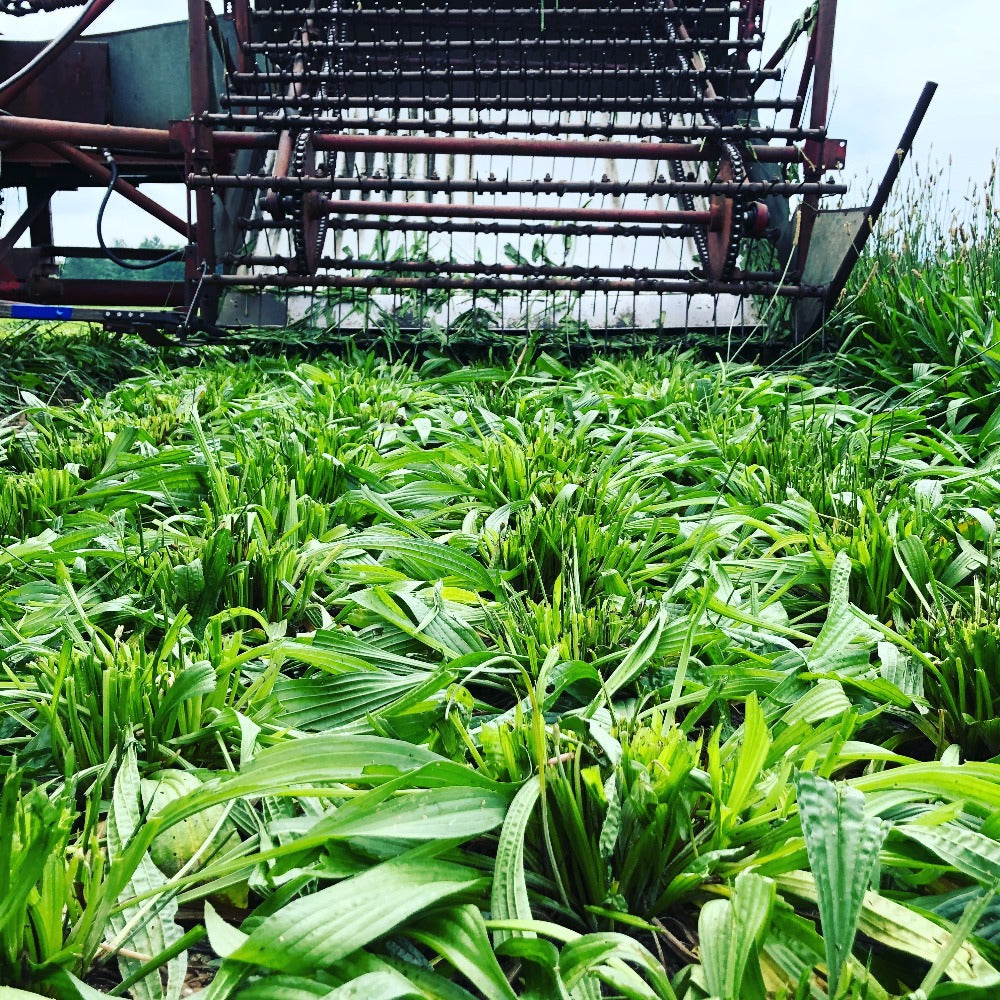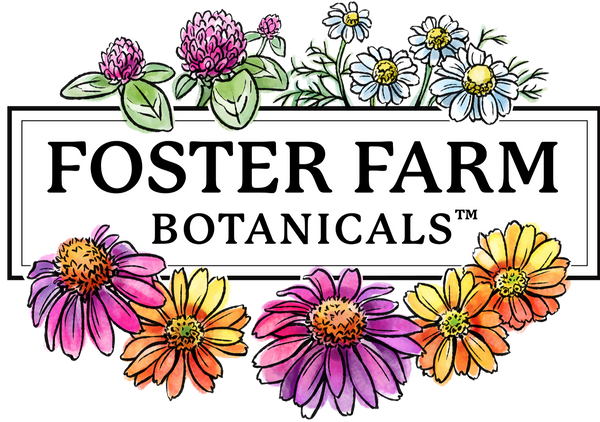Foster Farm Botanicals
Plantain-ORGANIC
Plantain-ORGANIC
Couldn't load pickup availability
Botanical Name: Plantago lanceolata
Origin: USA
Although today plantain is often considered a weed, historically American Indians used the herb topically in poultice form on stings and bites and made tea for kidney ailments. Plantain is native to Europe and was brought over by European colonists in the early 18th century. Native people would find it sprouting wherever the Europeans went and so named it “White Man’s Foot.” Today the herb seems to grow everywhere and is considered supportive for inflammatory issues both topically and internally.
Plantain grows very low to the ground via short rhizomes that contain many long, straight yellow roots. We grow Plantago lanceolata, also known as narrowleaf plantain or ribwort. The hardy herb seems to grow well in nearly every condition, and we tend to get 3-4 harvests per season.
Many herbalists prefer to use the leaves, but the seeds and roots are considered supportive as well. We love adding the fresh leaves to salads and soups. In herbal folklore, the leaf is chewed and placed on irritated skin in an effort to draw out something unwanted, such as a splinter or poisonous bite. Unsurprisingly, plantain is often found in skincare products.
We recommend that you consult with a qualified healthcare practitioner before using herbal products, particularly if you are pregnant, nursing, or on any medications.
*This information has not been evaluated by the Food and Drug Administration. This product is not intended to diagnose, treat, cure, or prevent any disease. For educational purposes only.




